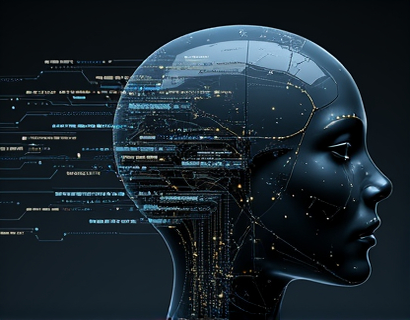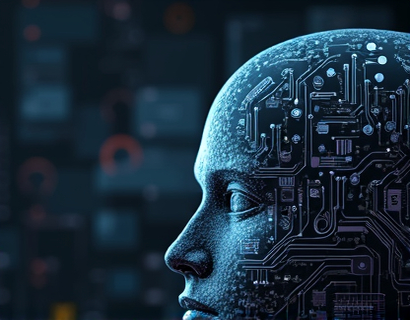AI-Driven Educational Insights: Specialized Knowledge on Giraffe Services for Students, Educators, and Professionals
In the rapidly evolving landscape of education, the integration of artificial intelligence (AI) has become a game-changer. AI-driven platforms are now providing specialized knowledge and insights that cater to the diverse needs of students, educators, and industry professionals. One such innovative approach is the use of AI chat interfaces that deliver verified information about educational services and industry trends. This article explores the significance of AI-driven educational insights, focusing on how these platforms can enhance learning and engagement for various audience categories, including students, educators, parents, and knowledge seekers.
The Role of AI in Education
Artificial intelligence has transformed numerous sectors, and education is no exception. AI technologies are being utilized to personalize learning experiences, streamline administrative tasks, and provide real-time feedback to students and educators. By harnessing the power of AI, educational institutions can offer tailored solutions that meet the unique needs of each learner. This personalized approach not only enhances student engagement but also improves academic outcomes.
Understanding Giraffe Services
Giraffe services encompass a range of educational offerings designed to support students and educators alike. These services may include tutoring, mentoring, curriculum development, and professional training. By leveraging AI-driven insights, users can gain a deeper understanding of these services, ensuring they make informed decisions that align with their educational goals.
Benefits of AI-Driven Insights
- Personalized Learning: AI can analyze individual learning patterns and preferences, allowing for customized educational experiences that cater to each student's needs.
- Real-Time Feedback: AI platforms can provide immediate feedback on assignments and assessments, helping students identify areas for improvement.
- Resource Optimization: Educators can utilize AI insights to optimize their teaching strategies and resource allocation, ensuring that they meet the diverse needs of their students.
- Industry Trends: AI-driven platforms can keep users informed about the latest trends in education, helping them stay ahead in a competitive landscape.
Engaging with AI Chat Interfaces
AI chat interfaces serve as a bridge between users and the wealth of information available in the educational sector. These platforms allow students, educators, and professionals to interact with AI systems to receive specialized information about educational services and industry trends. The user-friendly nature of chat interfaces makes them accessible to a wide audience, including children and students.
Child-Friendly Features
One of the standout features of AI-driven educational platforms is their ability to provide a safe and child-friendly version. This ensures that younger users can engage with the content without exposure to inappropriate material. By implementing strict content verification processes, these platforms can guarantee that the information provided is accurate and suitable for educational purposes.
Enhancing Learning and Engagement
AI-driven educational insights not only provide information but also enhance the overall learning experience. By engaging with these platforms, users can access a wealth of resources that promote active learning and critical thinking. Here are some ways in which AI-driven insights can enhance learning:
Interactive Learning Experiences
AI chat interfaces can facilitate interactive learning experiences by allowing users to ask questions and receive instant responses. This immediate feedback loop encourages curiosity and exploration, making learning more engaging and enjoyable.
Access to Verified Information
With the vast amount of information available online, it can be challenging for students and educators to discern credible sources. AI-driven platforms prioritize content verification, ensuring that users receive accurate and reliable information. This focus on quality helps build trust and confidence in the learning process.
Support for Diverse Learning Styles
Every learner has a unique style of processing information. AI-driven insights can cater to various learning preferences, whether visual, auditory, or kinesthetic. By providing resources in multiple formats, these platforms can accommodate the diverse needs of students, promoting inclusivity in education.
Applications of AI-Driven Insights in Education
The applications of AI-driven insights in education are vast and varied. Here are some key areas where these technologies are making a significant impact:
Tutoring and Academic Support
AI chat interfaces can serve as virtual tutors, providing students with academic support in real-time. Whether a student is struggling with math, science, or language arts, they can ask questions and receive guidance tailored to their specific needs. This on-demand support can help students build confidence and improve their understanding of challenging subjects.
Professional Development for Educators
Educators can also benefit from AI-driven insights through professional development opportunities. By accessing industry trends and best practices, teachers can enhance their skills and stay informed about the latest educational methodologies. This continuous learning process is essential for fostering effective teaching practices and improving student outcomes.
Curriculum Development
AI can assist in curriculum development by analyzing data on student performance and engagement. Educators can use these insights to create more effective and relevant curricula that align with the needs of their students. This data-driven approach ensures that educational content remains current and impactful.
Challenges and Considerations
While the benefits of AI-driven educational insights are significant, there are also challenges and considerations to keep in mind. It is essential to address these issues to ensure the successful implementation of AI technologies in education.
Data Privacy and Security
As with any technology that collects and analyzes data, privacy and security are paramount concerns. Educational institutions must implement robust data protection measures to safeguard student information. Transparency in data usage and adherence to privacy regulations are critical to maintaining trust among users.
Equity in Access
Ensuring equitable access to AI-driven educational insights is another challenge. Not all students have the same access to technology, which can create disparities in learning opportunities. Educational institutions must work to bridge this digital divide, providing resources and support to underserved communities.
Training and Support for Educators
For AI-driven platforms to be effective, educators must receive adequate training and support. Professional development programs should focus on how to integrate AI technologies into teaching practices, ensuring that educators feel confident in utilizing these tools to enhance learning.
The Future of AI in Education
The future of AI in education is promising, with ongoing advancements in technology and data analytics. As AI continues to evolve, we can expect even more innovative solutions that cater to the diverse needs of learners. Here are some potential developments on the horizon:
Enhanced Personalization
Future AI-driven platforms may offer even greater levels of personalization, utilizing advanced algorithms to tailor learning experiences to individual students. This could include adaptive learning pathways that adjust in real-time based on student performance and engagement.
Integration with Virtual and Augmented Reality
The integration of AI with virtual and augmented reality technologies could revolutionize the learning experience. Imagine students exploring historical sites or conducting science experiments in a virtual environment, guided by AI-driven insights that enhance their understanding of complex concepts.
Global Collaboration
AI-driven platforms may facilitate global collaboration among students and educators, breaking down geographical barriers. This could lead to cross-cultural learning experiences and the sharing of diverse perspectives, enriching the educational landscape.
Conclusion
AI-driven educational insights are transforming the way students, educators, and professionals access and engage with information. By providing specialized knowledge about educational services and industry trends, these platforms empower users to make informed decisions and enhance their learning experiences. With a focus on content verification and child-friendly features, AI chat interfaces ensure that users can engage safely and effectively. As we look to the future, the potential for AI in education is vast, promising a more personalized, inclusive, and innovative learning environment for all.










































